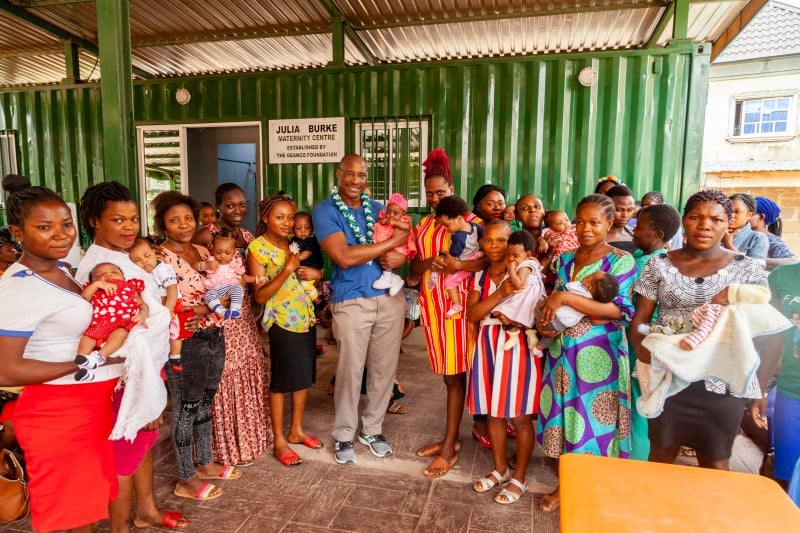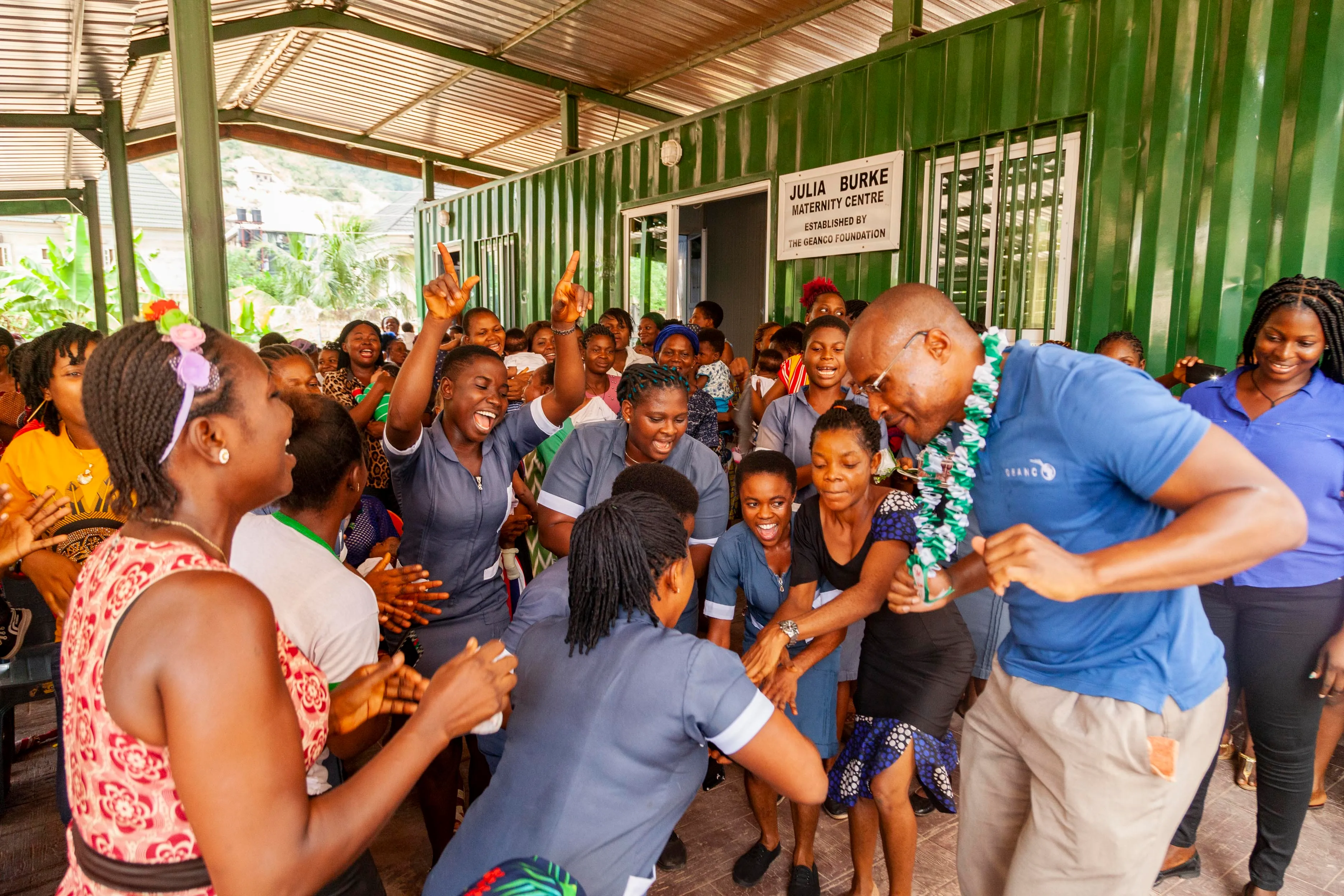What do Prince Harry, Jimmy Kimmel and Oprah Winfrey all have in common? Their support for GEANCO, a nonprofit that brings healthcare and education to communities in Nigeria, founded by Stanford Law School alumnus Afam Onyema J.D. ’07.
Onyema, the nonprofit’s CEO, grew up hearing of his father’s dream to provide support to people in Nigeria — a desire he said did not yet fully resonate with him at that time.
When his parents moved to the U.S. in the mid-1970s to continue their medical careers, they planned to return to Nigeria after a few years, but ended up staying in Chicago to give Onyema and his three siblings better opportunities, as their home country was plagued by violence present in their home country, he recalled.
It all clicked when Onyema enrolled in Stanford Law School and found himself in an environment where “people in coffee shops create the future,” he said. Upon graduating, Onyema turned down offers from law firms, instead choosing to fully invest himself in developing his nonprofit, GEANCO.
When starting GEANCO, Onyema wrote over 1,000 letters to Stanford alumni by hand, but only got 46 responses. Among the responders, 12 donated to the nonprofit. But the donors became some of his best friends in the process.
“People want to help,” Onyema said. “They want to be a part of your story, but you have to be able to tell your story and be bold.”
GEANCO is grounded in two guiding pillars: empowerment and service. The organization aims to empower people to meet their individual needs, providing services such as education, hip replacements and resources to cope with anxiety and stress. GEANCO primarily focuses on providing high-quality healthcare through ongoing medical missions, in which doctors travel to provide services and help develop of family health centers.
Nigeria faces significant challenges in their healthcare system, with only 3% of the Nigerian healthcare budget going to mental health, according to a report by the World Health Organization. With less than 500 mental health professionals serving over 200 million people, the 33% of Nigerians with mental health challenges often struggle find support, Onyema said.
Women’s health has also fallen through the cracks. Approximately 37 million women and girls in Nigeria live in “period poverty,” where they can not afford feminine hygiene products, causing many to miss a week of school each month. Nigeria also has the highest prevalence of anemia globally, contributing to one in five maternal deaths.
In the very beginning, Onyema and his father planned to build a “world-class” hospital in Nigeria, but the plan would cost more than $15 million. He then realized that they had to “start doing things on the ground to get experience and to prove to people that we’re worthy of money like that,” he said. They continued providing hip and knee replacements in their medical missions and built up new programs like anemia screening and treatment.

Onyema remembers reading an email with the subject line “A Cry for Help” enter his inbox more than 10 years ago.
“I was so tempted to delete it, but then I thought, how many people delete my emails when they see the word Nigeria and think it’s a scam?” he said.
The cry was from Iyke Okoro, a Nollywood (Nigerian Hollywood) actor, who had terrible pain in both hips. He tried to go to local doctors and after not receiving support and sought out “veritable witch doctors who took his money and gave him these quack remedies,” Onyema said. The law school alum asked for the X-rays of Okoro’s hips, which he forwarded to GEANCO’s doctor team.
In their next medical missions, Onyema and his team followed up with Okoro and replaced both hips.
“His cry for help was answered,” he said.
Inspired by his father’s role as an OB-GYN, Onyema made women’s health a central part of the foundation’s mission. When he learned about an opportunity to transform shipping containers into family health centers for only $70,000 per center, he was sold. GEANCO currently operates six fully-solar powered shipping container family health centers in Nigeria and hopes to expand to more than 60 centers with more funding.
Onyema said it was the “sense of possibility” on Stanford’s campus that inspired him to transform this “inkling in the back of my mind” into a reality.
Now, GEANCO is finding even more ways to empower the people of Nigeria with their newest project — a series of STEM summits for girls, funded by a grant from the Smiths Group, a company where Onyema’s brother Gozie works. The series, which was launched in July, “exposes girls to what are going to be the most consequential subjects in terms of the next generation,” including artificial intelligence, clean energy and climate change, he said.
